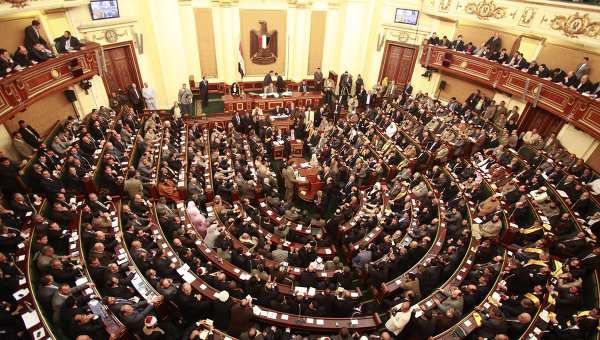Following the Democratic victory in the mid-term congressional elections and the Baker-Hamilton Commission recommendations, the Bush administration is under pressure to change its Iraq policy. Among those most alarmed by the prospect of change, especially if it involves a premature US withdrawal, are the Iraqi Kurds. Unlike any other group in Iraq, the Kurds bet everything on Washington’s success. They have been the US’s most enthusiastic supporters and theirs is the only region where American soldiers do not confront any hostility–in fact the Kurds are to a person grateful to the US for overthrowing Saddam Hussein. History and the US have not been kind to the Kurds. In the 1970s, the US and Iran backed a Kurdish rebellion against the Iraqi Baathist regime. In 1975, the shah of Iran, having exploited Iraqi Kurds’ rebellion to extract a series of concessions from Iraq, promptly cut off their supply and exit routes. The Ford administration simply watched as a superior Iraqi army decimated its former allies. In 1988, during Saddam’s murderous Anfal campaign, unable to utter the most mundane of criticisms, the international community watched in silence as the Iraqi military used chemical weapons against Kurdish civilians. Finally, in 1991, following the first Gulf war, then President George H.W. Bush called on all Iraqis to rebel and overthrow their dictator. When the Shiites in the south and Kurds in north followed through, Washington once again was nowhere to be seen. Faced with a relentless Iraqi assault, 1.5 million Kurds abandoned their cities and villages to seek refuge along the Turkish and Iranian borders. To protect their future in the post-Saddam era, the Kurds insisted on a federal constitution that maximized their autonomy without seceding from Iraq. Neither the Iraqi Sunnis nor even many Shiites welcomed this arrangement. The neighbors, Syria, Turkey and Iran, saw this as the first step toward an independent Kurdistan that could also inspire and galvanize their own Kurdish minorities. Iraqi Kurds fear that, in its desperation, the US administration will heed calls from the Baker-Hamilton Commission to engage Syria and Iran. In effect, this would not only be rewarding these countries for their uncooperative behavior but would also legitimize their role in Iraq. There is no doubt that both Iran and Syria are alarmed, perhaps not as openly as Turkey, at the growing indirect influence of the Iraqi Kurdish experiment in autonomy on their own Kurdish populations. Iran has experienced increased clashes with the offshoot of the Turkish-based Kurdish insurgent group, the Kurdish Workers Party, or PKK, and Syrian Kurds have time and again openly defied the regime. As long as the American project in Iraq had a chance of success, the neighbors’ and others’ concerns could be pushed aside. The current chaos, however, is pregnant to all kinds of anti-Kurdish coalitions, ranging from an Arab Sunni-Shiite one to any combination of the neighbors intent on reversing Kurdish gains. Of all the neighbors, Turkey appears to be the most problematic because it has often publicly stated that Kurdish independence would lead it to intervene militarily. While Ankara puts forward the defense of the small Turkish-speaking Turkmen minority in northern Iraq as the cause for its potential involvement, it really fears that its own restless Kurdish minority might be emboldened to demand greater rights at home. This minority–perhaps 20 percent of the population–represents Turkey’s Achilles’ heel. Adding to Ankara’s woes is the PKK, which has found haven in northern Iraq under the very eyes of the coalition forces and their Kurdish allies. Washington has three options if it does not want to once again leave the landlocked Iraqi Kurds to the whims of its opponents. The first is to engineer a rapprochement between Ankara and the Iraqi Kurds. This would entail not only US pressure on the PKK to disband itself, but also extracting mutual promises from both sides. The Iraqi Kurds would institute measures–supervised by the international community–that ensure Turkmen minority rights. The Turks would not only provide security guarantees but also become a bridge between northern Iraq and the West. By deepening its ties to Iraqi Kurds, Turkey could buy peace at home and abroad. This approach has the added benefit of reducing Turkey’s temptation to align itself with Iran and Syria, thereby constructing a solid front against these two countries’ ambitions. The other alternatives are much less attractive. Washington can leave troops behind in northern Iraq to deter against foreign interference. This is unlikely to please the neighbors, including NATO-ally Turkey. Finally, were the Kurds forced to declare independence because of an outright Iraqi civil war, Washington could push for United Nations recognition. As we saw with Croatia, this entails risks. Talk of engaging Syria and Iran, or even an early pullout, is not a solution. What the US needs to do is generate new and complex strategies if it wants to avoid crowning its Iraqi misadventure with a desertion of its only allies in Iraq. Henri J. Barkey is chair of the international relations department at Lehigh University and a former member of the State Department’s Policy Planning Staff. This commentary first appeared at bitterlemons-international.org, an online newsletter publishing views on the Middle East and Islam.

